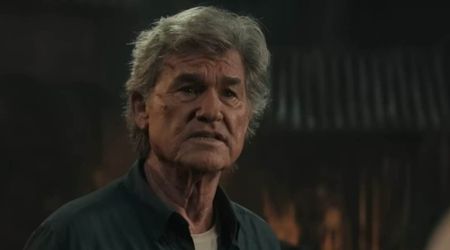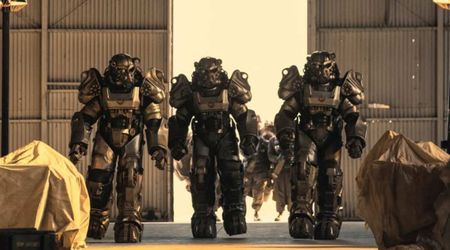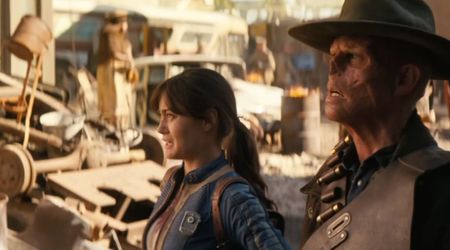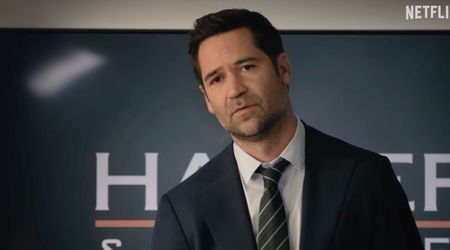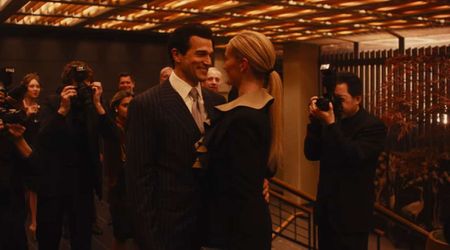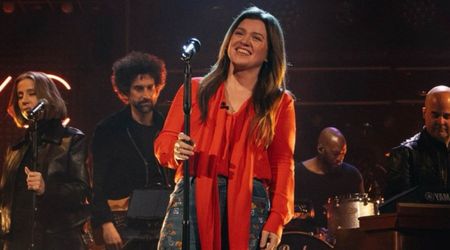'Teenage Bounty Hunters' Review: Complex issues on race, sex and religion in South dealt in lighthearted way

You don't go in expecting anything very profound when you tune in to watch something called 'Teenage Bounty Hunters'. And yet, somewhere from Episode 5 onward, the show starts metamorphizing into something with a much more complex taste profile from its earlier frothy vacuity.
Don't get us wrong -- there is still a lot of fantastical fluff like most YA shows but it is in the service of revealing something real about growing up in a conservative, religious White "Richie-Rich" family in the South (Atlanta to be specific) -- where hunting deer, bearing arms, Bible-verse quoting and racist country clubs are commonplace phenomena. Racial faultlines aren't avoided but are dealt with a light hand or by subverting tropes. For instance, Miles, the Black valet at the country club, who Blair assumes is poor, actually is even richer than her with a mother who is a senator.
Then we have Bowser himself agreeing to let the girls "intern" for him because they can get intel and get into the "1%" spaces far more easily than him. As a Black middle-aged man, he is more likely to get arrested by cops and questioned by neighborhood security when he stakes out a place for a perp -- a situation that plays out like a comedy skit on the show -- only the scenario is very real.
In one memorable scene, Bowser, the veteran bounty hunter, has to capture a Black woman beheading Confederacy statues in front of schools. He runs into Confederacy 'enthusiasts' who want to help him "get her" as they play vigilante protectors of Southern pride. While they wait, they grill sausages on the grill of their car.
Then, a few episodes later, we meet a "slippery stripper", who has a history of giving Bowser the slip in creative ways which is chronicled in a montage when he gets her file again. Colorful characters like her and the Confederacy nut jobs pepper the series. This keeps proceedings lively and well-paced as we see the fraternal "twins" Blair and Sterling team up with Bowser and Yolanda (who gives them the bounties to pursue) to solve cases to track and capture "skips" (those who have 'skipped bail'). But that is just the window-dressing for the show, so to speak.
The actual story is about being teenagers whose hormones and bodies are telling them things that directly clash with what their family, community and religion tells them. This balancing act between religion and sexuality especially haunts Sterling, the proverbial "good girl" who quotes Bible verses to convince her boyfriend-since-the 5th-grade, Luke, to have sex with her. And then, after she falls in love with her school nemesis, April, Sterling describes her sexuality as "blue-pink-purplish". She is however sure of one thing -- God loves her.
Blair, the more rebellious and drama-loving twin, has to deal with her own obsessive personality as she looks for trouble actively. She too struggles with love, choosing whether to "bone" only when it "feels right", to heartbreak and disillusionment around concepts like family and soulmates. Both girls show sufficient sibling chemistry to make their connection, complete with twin swears and telepathic connection, seem believable. The only thing missing is that there aren't enough callbacks to earlier incidents in their lives -- the one instance in which it is used reveals how much deeper the bond would have felt if those callbacks were used more frequently especially during the twins' arguments.
Their interactions with Bowser are the best as they spew teenage gobbledygook which Bowser is partly horrified by, especially when they discuss anything to do with sex. We also have substantial side plots involving Bowser and Yolanda's 'will they, won't they' storyline complicated by the fact that Yolanda's sister was once married to Bowser. Given that the show's first season has 10 episodes with runtimes between an hour and 50 minutes, there is enough time for these characters to be developed fully so that they 'feel real'. There is a lot packed in, especially from Episode 5 onward.
Toward the very end, in the last three episodes, the show turns into a mystery thriller around the girls' mother and what their parents have hidden from them all their lives. The series is eminently binge-worthy and mixes the mundane with the fantastical in right doses -- one lifting up the other in the narrative arc.
'Teenage Bounty Hunters' premiered on August 14 and is available to stream on Netflix.

